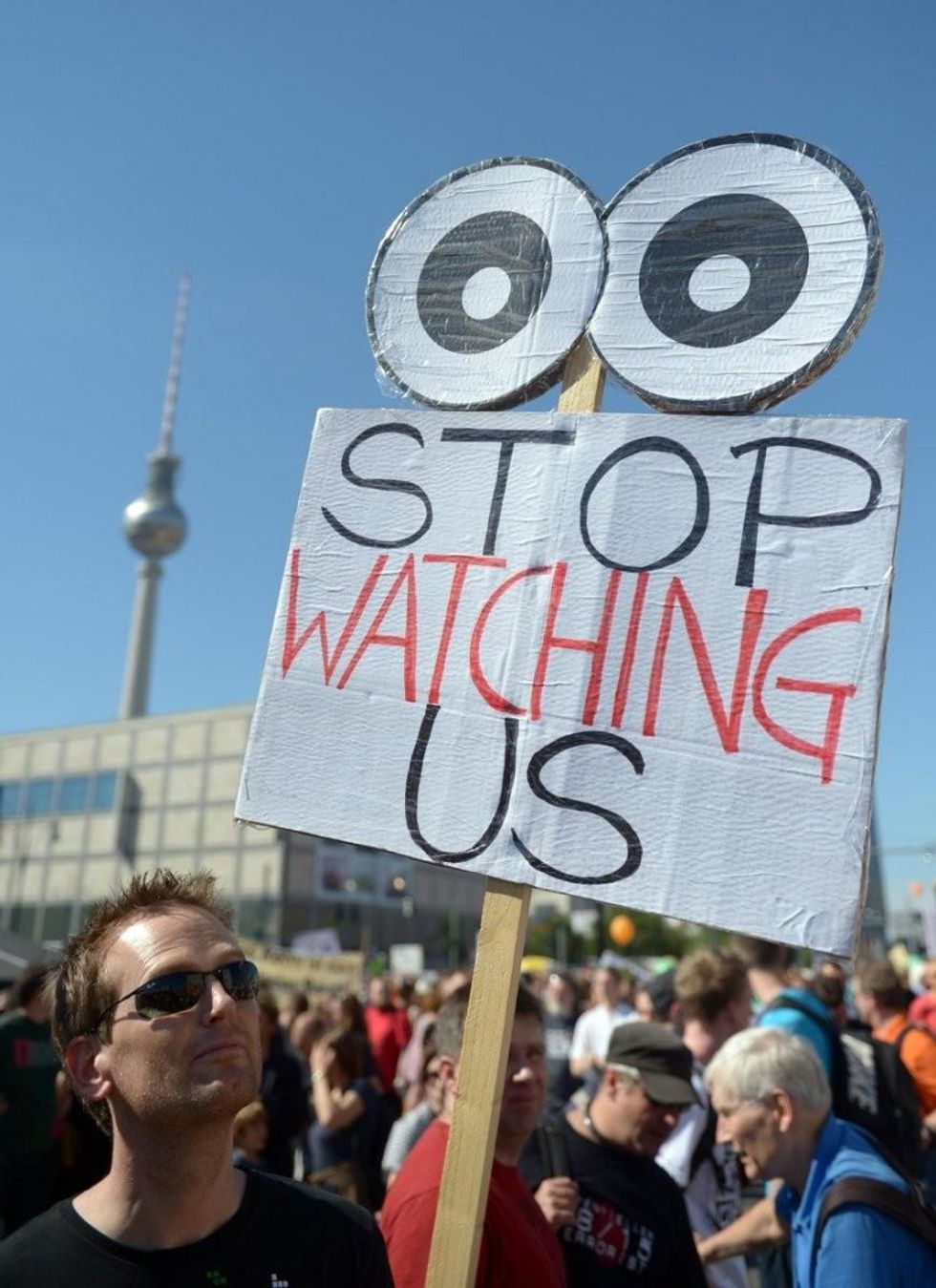Although the Pirate movement only spread to Iceland in 2012, the Icelandic Pirate Party is the most successful branch: it was the first to gain representatives in a national parliament. In 2013, with 5.1 percent of the vote, the Pirates took three seats in Iceland's legislature. And despite its small numbers in parliament, the party spearheaded a repeal of Iceland's 1940 blasphemy law -- a substantial victory for free-speech advocates.
Over the past year, the Pirates have steadily risen in the polls, regularly netting one-third of the support -- a significant plurality in a country with six political parties represented in the parliament. If their support holds, the Pirates could push the center-right coalition out of office in the fall elections.
"The Pirate Party is successful because we have actually proven ourselves to be human," says Asta Helgadottir, 26, one of the Pirate Party's representatives in parliament. "We are not trying to be politicians."
Iceland's Pirates are not alone. Disaffected citizens on both sides of the Atlantic and both sides of the ideological divide -- from the Tea Partiers to the Feel-the-Berners, from the Leavers of Britain to Spain's Podemos and Nuit Debout in France -- have promoted insurgent campaigns, attempting to reinvigorate democracy and bring representation into the 21st century.
The manner in which these political movements choose to build trust, says Helgadottir, is critical.
"You can [build trust] with authority, with ultra-nationalism, the way that Poland and Turkey are going right now," she says. "You tell people, 'I have control, everything is going very well. So you should trust me.'" Or, she continues, you provide "a democratic alternative."
By utilizing the internet to crowdsource policy, the Pirates have chosen the latter path: members can submit proposals for a partywide vote. Such open-ended collaboration has even allowed for ideological diversity within the party, eschewing the traditional left-right divide.
"Almost everyone [in the Party] believes different things than me," says Olafur Torfi Yngvason, who attended his first Pirate meeting in July. "That's the whole point of the Pirate Party. They're not trying to be anywhere on the political axis; they're a collection of people."
The notion that a party could transcend political infighting has captured the attention of many Icelanders, who have an understandable distrust of the political establishment. In 2008, Iceland's banks -- which had ballooned under reckless speculation, foreign-currency borrowing, and absent regulations -- collapsed, leaving the economy in shambles. Public confidence in the political system plummeted. Suddenly, corruption was real and prevalent.
Then, in April, the Panama Papers implicated Prime Minister Sigmundur David Gunnlaugsson for funneling personal finances into offshore accounts. Gunnlaugsson failed to disclose such expenditures to parliament, an illegal act under Icelandic law.
Icelanders took to the streets in the nation's largest-ever protests and forced Gunnlaugsson to resign, though his Progressive Party stayed in power. Following the scandal, the Pirates were polling as high as 43 percent, whereas the Progressives found themselves at 6.5 percent.
The leftist parties were always a part of the game.
-- Asta Helgadottir
Interestingly, the traditional center-left parties have not benefited from the decline of the conservative government. Yngvason says that's because Iceland's leftist parties proved to be incompetent during the four years they held power after Iceland's 2008 financial crash -- the only period a left-wing majority controlled parliament during Iceland's 72 years of independence.
The Social Democrats and Left-Green governing coalition proceeded to lose the 2013 elections to the still-maligned conservative parties after failing to pass meaningful reform during their time in office, and alienating Icelanders by kowtowing to the IMF's bailout demands.
"The leftist parties were always a part of the game," Helgadottir, the young Pirate MP, charges.
The Pirates believe that democratic systems based on centuries-old power structures are increasingly unable to meet the demands of today's generation.
Iceland's democratic structures were inherited from the Danish monarchy, Helgadottir notes. "We still have the same power structures that we had in the 17th century," she says. "[Our government] was not built on democracy; it was built on the idea of an authoritarian king."
For Iceland's Pirates, updating democracy means expanding transparency and giving citizens a greater foothold in policymaking, allowing them to take power back from the political class.
Whether other countries choose to follow in Iceland's footsteps is still an open question.
The US had a revolution to free itself of a monarchy, but now appears to be tilting towards oligarchy. With the expanded role of big money in politics, American political parties have seen their influence wane and voter alienation rise. Could the Democrats and Republicans get their mojo back by becoming more open and attentive to public input -- a change that by definition would mean becoming less attentive to monied special interests?
At minimum, for the US, where voter participation is generally low (a situation exacerbated by recent laws that limit voting rights in some states), it's worth considering the Iceland Pirates' view about what a more representative democracy entails.
"Democracy is much more than voting," says Helgadottir. "It's a means of thinking, a tool. It's a utopian goal: there's no such thing as a perfect democracy. It's something we have to build upon."


